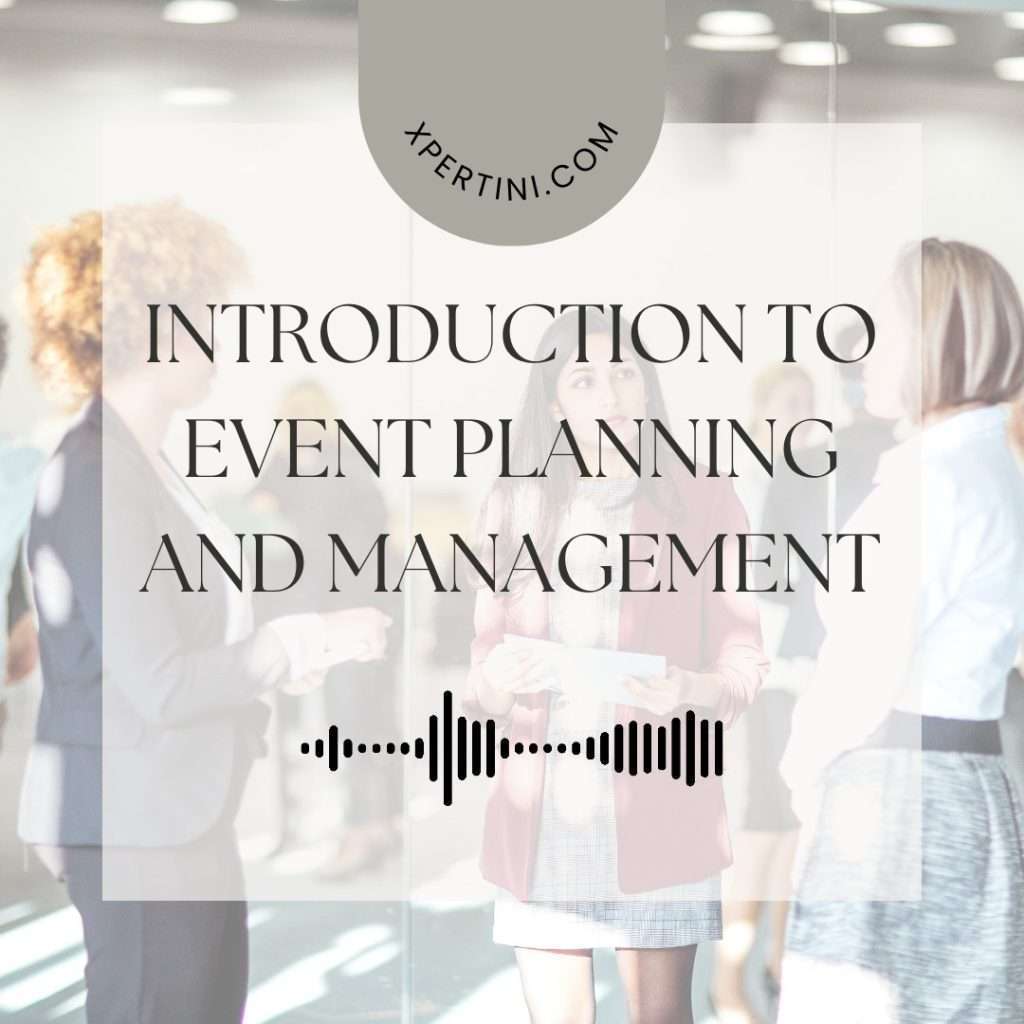Introduction to Event Planning and Management
Course Summary
In this comprehensive course on event planning and management, learners embark on a journey through the multifaceted world of orchestrating memorable gatherings and experiences. Delving into the event planning, participants explore fundamental concepts, strategies, and best practices essential for success in this field.
Beginning with an exploration of event types and purposes, learners gain insights into the diverse spectrum of events, ranging from corporate conferences to social celebrations. They examine the nuances of event design, learning how to create engaging and immersive experiences tailored to specific objectives and target audiences.
Participants delve into the critical aspects of event logistics, from venue selection and budget management to vendor coordination and risk mitigation. They discover the importance of meticulous planning and attention to detail in ensuring seamless execution and optimal attendee satisfaction.
Throughout the course, learners explore the pivotal role of technology in modern event planning, discovering innovative tools and software solutions that streamline workflows, enhance efficiency, and elevate the overall event experience. They learn how to leverage technology to engage attendees, personalize interactions, and harness data insights for continuous improvement.
Networking and professional development emerge as key themes, with learners uncovering strategies for building meaningful connections within the industry, pursuing certifications, and staying abreast of emerging trends and best practices. By embracing a culture of lifelong learning and collaboration, participants position themselves as competent and adaptable professionals poised for success in the ever-evolving landscape of event planning.
Through a blend of theoretical knowledge and practical application, this course equips learners with the skills, strategies, and confidence needed to thrive in the fast-paced realm of event planning and management. With each module, participants deepen their understanding, refine their skills, and emerge prepared to tackle the challenges and opportunities that lie ahead in their event planning careers.
Course Overview
This course provides a comprehensive introduction to the field of event planning and management. Participants will gain foundational knowledge and practical skills necessary for organizing successful events across various industries and scales. Through a combination of theoretical principles, case studies, and practical exercises, students will develop a holistic understanding of the event planning process and its significance in today’s society.
Course Objectives
Understand the fundamentals of event planning and management.
Learn how to identify and analyze different types of events and their requirements.
Develop skills in budgeting, logistics, marketing, and risk management for events.
Gain insight into the role of technology and innovation in modern event planning.
Learn effective communication and negotiation techniques for dealing with clients, vendors, and stakeholders.
Explore strategies for creating memorable and impactful event experiences.
Understand the importance of sustainability and considerations in event planning.
Develop problem-solving and decision-making skills specific to the event industry.
Gain practical experience through projects and simulations.
Prepare for potential career opportunities in event planning and management.
Course Outcomes
Able to identify the key components of event planning and management.
Demonstrate the ability to analyze event requirements and develop comprehensive plans.
Apply budgeting techniques to allocate resources effectively for different types of events.
Evaluate marketing strategies to promote events and attract target audiences.
Assess risks associated with events and implement appropriate mitigation measures.
Utilize technology tools for efficient event planning and execution.
Demonstrate effective communication skills in dealing with clients, vendors, and stakeholders.
Design sustainable and ethically responsible event experiences.
Solve problems and make decisions in real-time event scenarios.
Create a portfolio showcasing their event planning skills and experiences.
Course Audience
Individuals aspiring to pursue a career in event planning and management.
Professionals seeking to enhance their knowledge and skills in organizing events.
Entrepreneurs interested in incorporating events into their business strategies.
Students studying hospitality management, marketing, or related fields.
Anyone with a passion for organizing and executing memorable events.

